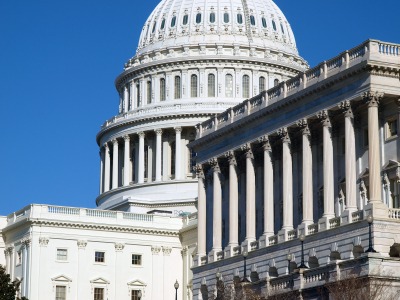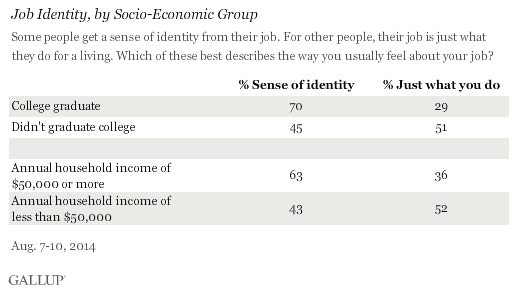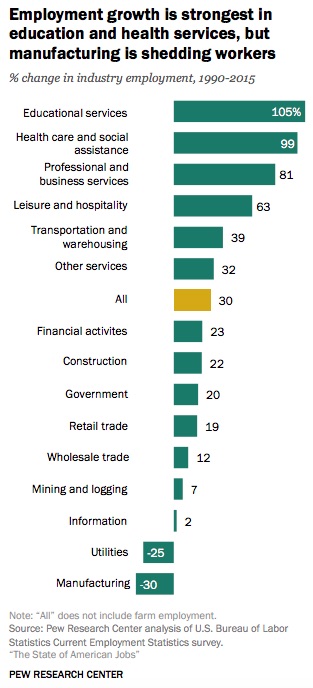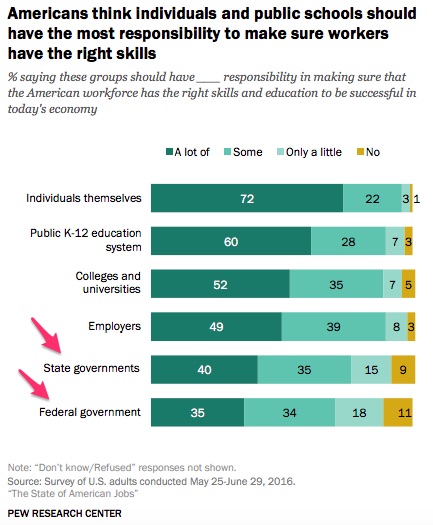
Explaining Why We’ll Have New Hotel Shampoo Bottles
May 3, 2018
Our Weekly Economic News Roundup: From Unused Subscriptions to Unused Shampoo
May 5, 2018Job guarantee programs have been in the news.
N.J. Senator Cory Booker recently proposed that 15 local communities get federal grants to create employment for everyone who wants it. The program’s participants would get at least $15 an hour, health benefits, and paid family/sick leave.
The idea’s supporters say labor markets need a major nudge from the public sector. Vulnerable populations could get jobs, wages could rise, and beneficial tasks could get done. We would have people building our infrastructure, repairing our electrical grid, and expanding childcare facilities.
Others say it would not work. After looking at 207 studies of jobs programs, one group of economists said the public sector programs were the least successful. As they reported, “Public sector employment subsidies tend to have negligible or even negative impacts at all horizons.”
So, today, I thought we might consider whether a jobs guarantee is a viable goal for our country.
Jobs Guarantee Issues
Self-Identity
We can ask if one purpose of a jobs guarantee program is to buoy self-identity.
Here, a 2014 Gallup poll could come in handy. Their results suggested that your income and education relate to the identity you get from your job. If you didn’t graduate from college and your household income was less than $50,000, it is more likely that your job is just what you do:
Which Jobs?
Meanwhile. we can ask which jobs need to be created. Yes, it could be what government says is needed. However, if we want program participants to have private sector potential, this Pew survey sends a message:
Public Attitudes
Knowing that large government initiatives need widespread support, we should consider what Pew says about developing workplace skills. Their survey indicated people believe in less dependence on government:
Of course there are countless other considerations. We have to think about job training and the details of creating and maintaining a program. And of course there would be questions about where the money would come from and whether other approaches could achieve similar goals.
Our Bottom Line: Entitlement Programs
Perhaps we can end with where we should start. We are talking about a massive entitlement program. For some of us, that fits with what we believe government should provide. For others, it belongs in the private sector.
But for all of us, whatever, we support, we must ask if we are willing to accept the tradeoffs.
My sources and more: I recommend these Gallup and Pew survey reports for insight about our job attitudes. Even more valuable, I liked what this academic paper from UC Berkeley’s David Card and his associates told about past programs. However, if you just go to one other article, do look at this Vox discussion.
![econlifelogotrademarkedwebsitelogo[1]](/wp-content/uploads/2024/05/econlifelogotrademarkedwebsitelogo1.png#100878)








0 Comments
From what my parents have told me, that the The Civilian Conservation Corps (CCC) which was a public work relief program that operated from 1933 to 1942 in the United States for unemployed, unmarried men was very successful. Perhaps our government needs to resurrect this program or modify the CCC model for present day conditions and needs.